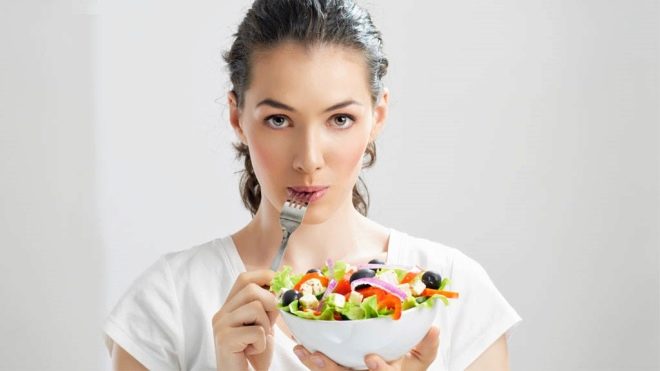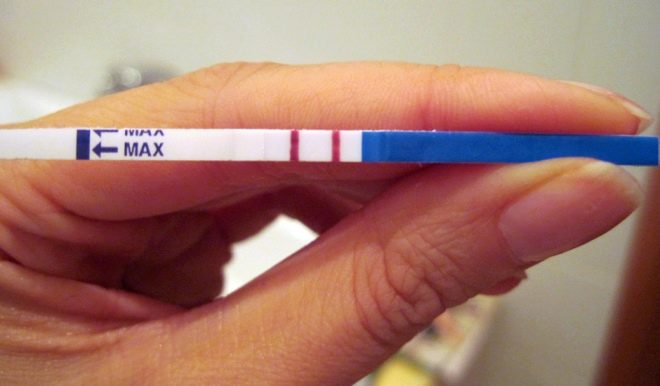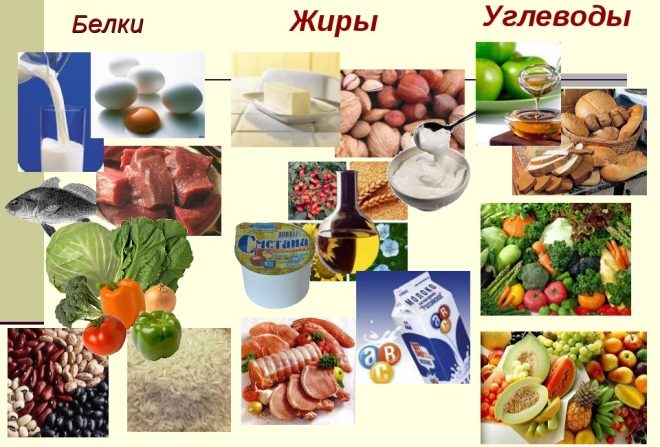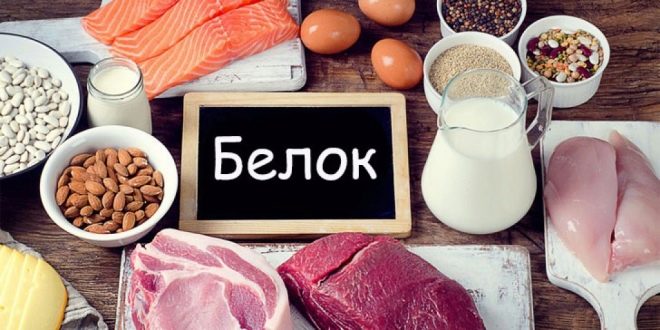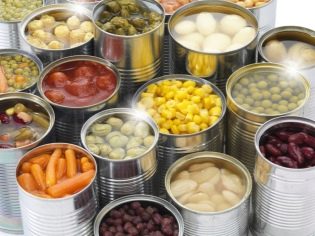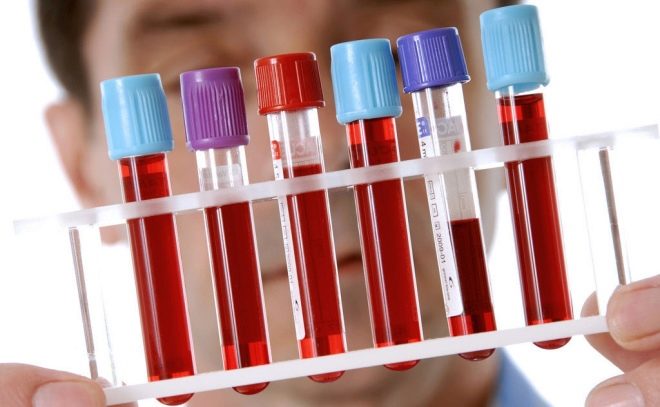Nutrition in first trimester
Nutrition for pregnant women is important. Especially you need to pay attention to nutrition in the first trimester, because it is in the first weeks of pregnancy that all the organs and systems in the body are laid down and differentiated. Proper nutrition during this period will help provide the child with everything necessary for this important process - embryogenesis.
How does the embryo get food?
The first week after conception, the baby does not receive nutrition from maternal blood - it has no connection with its blood vessels. The yolk sac, which is formed on the site of the bursting follicle, is responsible for feeding. After the fertilized egg has descended into the uterus, it dwells in the nutrient medium of the intrauterine fluid. At 7-9 days after conception, implantation occurs - the outer membranes of the embryo are attached to the wall of the uterus.
The finest antennae-villi, which will become the chorion, secrete substances that destroy the cells of the maternal endometrial layer, so the fetal egg is able to penetrate deeper into the endometrium. The villi are connected to the blood vessels of the mother and the baby begins to receive nutrients directly from the maternal blood. Placenta yet.
In this way, to think about what the baby eats in the womb, you need immediately after the woman sees two stripes on the test.
There is no need to postpone it until later - right now the child has a need for certain substances that will contribute to the process of embryogenesis.
What does a child need?
The organs and systems of the embryo are formed intensively. These are very energy-intensive processes, and therefore, in 1 trimester, a woman should definitely increase the caloric content of her daily diet by 100 Kcal (up to 2300-2700 Kcal).
The sensitivity of the crumbs to the lack of certain nutrients and of vitamins, as well as to their abundance, it is in the first three months of gestation that is very high, and therefore it is necessary to try so that the food is maximally saturated with vitamins and minerals. Even if a woman is accustomed to have breakfast on the run and dine in a fast food fast-food restaurant, After two strips of dough, you definitely need to change your habits - start eating vegetables, fruits, berries, fresh greens, seafood, nuts, dairy products, meat and fish.
The need for carbohydrates (as the main source of energy) increases by 15%, in fats - by 5%, in proteins - by 30%. The daily ration of the above calories should be distributed as follows:
- the share of carbohydrates - 55% of the diet;
- fat - 30% of the diet;
- the share of proteins - 15% of the diet.
Even if a woman is a vegan vegetarian, an exception must be made right now for the sake of the baby's health - protein is necessary as a building material for his body, and, alas, vegetable protein cannot be such. A full-fledged, animal protein is needed (man is not conceived by nature as herbivorous, many processes of embryogenesis require the presence of a sufficient amount of animal protein).
Protein is needed in the first trimester not only for proper development of the fetus, but also to ensure the growth of the uterus.Animal protein is actively involved in the formation of the placenta. It is very simple to calculate the amount of protein for a specific pregnant woman: for every kilogram of her body weight, 1.5 grams of protein per day is required.
Of the amount obtained, only 50% should be represented by vegetable proteins, the rest is animal proteins, which cannot be dispensed with.
You need to get the amount of animal protein from meat and fish - about 25% of the daily amount, from milk - 20%, and about 5% - from chicken and quail eggs. Attempts to replace meat and fish with one milk will not succeed.
The consequences of a lack of protein in the first trimester can be rather pitiable for a child:
- the development of diabetes;
- obesity;
- violation of the functioning and structure of the heart and blood vessels.
Vegans who refuse to accept meat are encouraged to diversify their menu with at least milk and eggs, although this will not fully provide the right amount of structural protein.
Fats are necessary for the development of the brain crumbs, for the formation and laying of nerve cells and endings, to ensure the intellectual potential of the child, which is only half dependent on genetic data. Without the presence of fat, some vitamins cannot be absorbed, for example, vitamin A and vitamin D.
Fats should be obtained from vegetable oils, which can be refilled salads, side dishes. It is not necessary to heat or boil the oil. Fat and fat of animal origin is better to eliminate from the diet, because it will not benefit. Do not give up the butter. It needs to be consumed about 20 grams per day. In total, fats per day in the first trimester require about 85 grams per day.
Energy costs of the female and children's body must replenish carbohydrates. They need about 500 grams per day if the woman does not have excess weight, and only 300 grams if there is excess weight. It is better to consume carbohydrates that are quickly absorbed and do not require a large production of insulin. This is buckwheat porridge, oatmeal, rice, fresh vegetables and fruits, bread.
Catering tips
A woman must drink more fluids. There is still no urgent need to limit drunk, as in the long term. If you subtract the first dishes and do not take them into account at all, then the liquid body of the female requires from one and a half to two liters. This includes non-carbonated water, homemade fruit drinks, fruit drinks, own juices.
Even if there is not enough time for cooking, you should use every opportunity to try to eat only fresh, cooked at home. Products that a pregnant woman needs in the early term every day:
- lean meat or fish - about 150-200 grams;
- milk or dairy products - about a glass;
- low-fat cottage cheese - about 60 grams;
- fresh vegetables - about 450 grams;
- fruits and berries - about 400 grams.
Try to break the daily ration into 4-5 meals, but in less plentiful portions. The share of breakfast should be paid to 30% of the diet, for lunch - 40%. At 10% get dinner and two snacks during the day.
Important! The tendency to allergies in children whose mothers are in the first trimester if the products with high allergenicity are 75% higher than in children whose mothers avoided such products.
Citrus fruits, peanuts, some types of seafood (mussels, oysters, octopuses) are considered highly allergenic.
Women who study, work may be puzzled - how to eat 5 times a day? Very simple: get a container for food, in which in the morning add what will be necessary for snacking - fruit, cottage cheese. Nothing bad will happen if in her busy schedule the future mother finds two times five minutes to have a snack and support the healthy formation of her baby.
Cook in certain ways. Pregnant women will be the most useful boiled, stewed, baked, steamed dishes. From the fried should be abandoned.
Prohibited Products
In the menu of a pregnant woman from the earliest dates should contain only fresh products. If the fruit is grown in the area in which the woman lives, if the meat is of domestic production. There are groups of products that must be discarded immediately. They should not be eaten under any circumstances throughout the entire period of carrying the child.
- Canned and marinated products - All canned foods contain preservatives (as the name implies). They have an effect similar to that of carcinogens. The ban applies to canned meat, and fish, and vegetable.
- Smoked and low-fat sausages, ham, sausages. Meat in these products a little, but fat, sugar and dyes - more than enough.
- Store juices in packs and bottles - it is not enough vitamins, and it is a lot of sugar. This can also be attributed to sweet soda.
- Factory sweets, sweets, cakes and pastries - A source of so-called fast carbohydrates, which do not provide a person with energy, but only contribute to the deposition of fat.
- Salted and smoked fish, meat contain a large amount of salt and fat, and smoked in the factory contain harmful carcinogens from liquid smoke, which is processed raw products.
- Alcoholic beverages - all without exception. Ethanol has a detrimental effect on the formation of the fetus and, if used systematically, can lead to developmental defects, a change in DNA.
- Ketchup, mayonnaise, fast food - abundance of heavy, unhealthy fats, preservatives and dyes.
Toxicosis Diet
The first trimester is often accompanied by toxicosis. The reasons for which a completely healthy, young woman begins to feel sick, the doctors have so far failed to establish. It is believed that this is a trick of immunity, which refuses to quickly accept the fact that the body works in a new reality - in a state of pregnancy.
Toxicosis usually begins with 5-7 weeks and lasts, as a rule, until 13-14 weeks, when the young placenta is completely formed and begins to perform its duties.
The idea that the painful smells and vomiting is temporarily, of course, calms, but after all, these three months still need to be experienced somehow!
A woman in a state of toxicity, it is important to consult a doctor to establish the degree of gestational intoxication. There is toxicosis, which is treated exclusively in the hospital, and proper nutrition can not be helped here. If a woman has nausea, vomiting several times a day, some smells seem intrusive to her, but there are no signs of dehydration, This can be done by organizing your own food in such a way as to cope with a difficult period without damage to your own body and the health of the child.
- The first rule of nutrition in case of toxicosis is the need to eat. Even if you do not want, you still need to eat in small portions, little by little.
- The second rule - do not limit your diet to one product. Some advise women to eat at least what she can eat, but mono-nutrition, for example, only cottage cheese or only pickled cucumbers, will not provide the child with everything necessary during the laying of organs and systems.
- The third rule - before getting out of bed, eat a piece of something containing sugar. Morning nausea is usually closely associated with falling glucose levels, which is normal after a night's sleep. If you make a plate of dried fruit in the evening and put it on a bedside table by your bed, then in the morning it will be easy to quickly fill up the glucose level, and only then get up and do all the necessary morning activities.
Women with toxemia are not recommended to eat sweets during the day, as well as fatty. It is recommended to accept food warm, but not hot and not cold, so more likely that it is absorbed.
If a woman has toxicity accompanied by frequent vomiting, then she is allowed to eat salty, but at the same time be sure to drink at least two liters of fluid per day - it is important to restore the water-salt balance.
Lemon water can help reduce nausea - a few drops of lemon juice can be added to drinking water.This drink can take with you to work, to study. Useful is broth hips. It can be prepared both from fresh fruits and from dried ones.
Fruits rich in ascorbic acid will help to cope with unpleasant nausea, but with citrus fruits you should be as careful as possible.
Among herbal teas, it is recommended to drink calendula decoction, tea with mint leaves.
Other phytotherapeutic recipes and recipes of traditional medicine are important to discuss with your doctor - not all herbs are equally useful, and some can harm a child in general.
Are vitamins necessary or not?
Even eating right, it is quite difficult to maintain the necessary balance of vitamins and minerals in the body. In the first trimester, there is a high need for vitamins of group B, vitamins D, K, E, A. Iodine and calcium, zinc and selenium, and iron are also needed.
Meals alone, even a carefully selected menu, cannot always provide the child with everything they need, and the women’s health status is different. Therefore, it is recommended to discuss with a doctor multivitamin preparations that can be taken by a specific expectant mother. The conclusion about the shortage or excess in the body of certain substances make the results of biochemical analysis of blood. He is surely given to all expectant mothers when registering at a antenatal clinic.
Nutrition in the first trimester of pregnancy should be flexible, the woman at any time should be ready to change it, if something in her pregnancy goes wrong. If anemia is detected in the early period, iron preparations, apples, buckwheat, red meats, and liver are recommended. With constipation, you will need to eat more raw vegetables rich in fiber.
More on the nutrition of pregnant women in the first trimester, see the following video.

